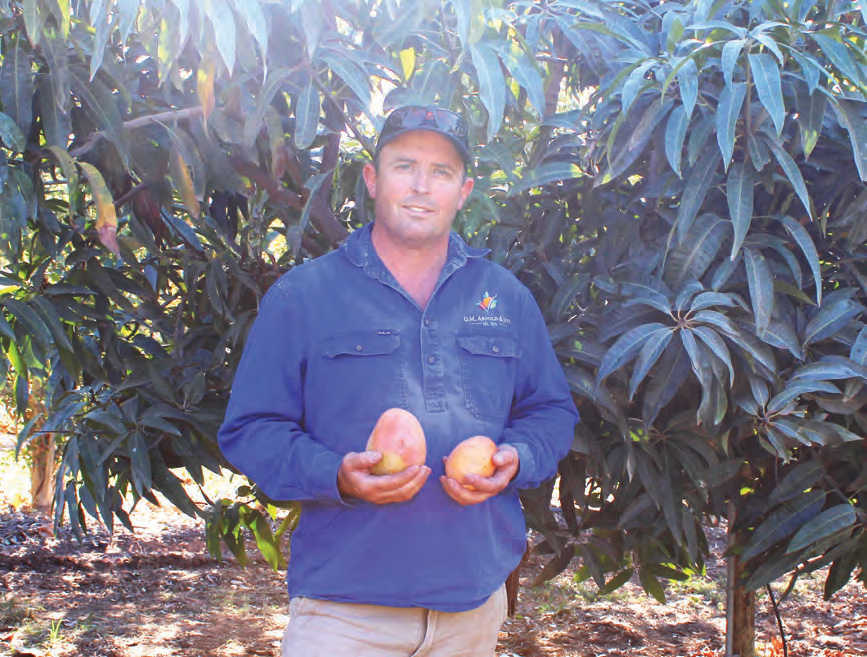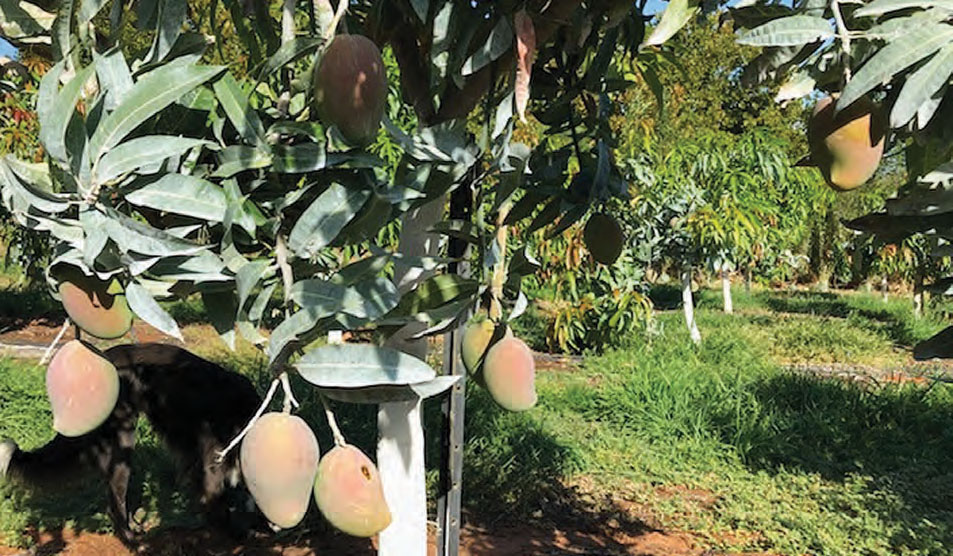Christine Webster, Murray Pioneer
Ongoing heat has resulted in an early mango harvest for Riverland West mango producers G.M. Arnold & Son.
David Arnold, director of the long-established family fruit business that has been operating since 1915, said due to the long spell of hot weather, the harvest came early in the second week of February, and was over by the end of the month.
He said the early season failed to affect the quality or yield of their mango crop.
“We had a higher tonnage than we had last year,” Mr Arnold said.
The Arnolds mainly send their Kensington Pride mangoes to Melbourne, and sometimes to Sydney.
“Prices were probably not as good this year because they were a month early,” Mr Arnold said.
He said the early harvest in February meant that their Riverland mangoes were released to consumers at a time when mangoes from the northern states were still available.
“I prefer harvest in March,” Mr Arnold said.
He said during February, Keitt mangoes, from northern Australia, were still available in the marketplace.
“When our Kensington Prides are harvested in March there are usually less mangoes around from other states on the market, so it is a bit easier to fetch a higher price,” Mr Arnold said.
The Arnolds planted their first mango trees, which they sourced from a nursery in Queensland, about 10 years ago.
Mr Arnold said the aim was to increase their yield each year.
Mangoes are traditionally grown in the tropical and sub-tropical regions of the Northern Territory, Queensland, New South Wales and Western Australia.
Mr Arnold believes Riverland-grown Kensington Prides taste better than those produced in northern parts of Australia.
He said mango trees usually begin flowering in the Northern Territory around July, and the fruit forms and is ready for harvesting around October, whereas in the Riverland the process is slower.
In the Riverland, mango trees start flowering in September or October, and harvesting of fruit begins in March.
“It usually takes about five or six months for our fruit to form,” Mr Arnold said.
“I think our mangoes are less stringy and the seeds are smaller and because they end up being so much longer on a tree, they have more flavour and are sweeter.”
This article appeared in Murray Pioneer, 2 April 2025.



